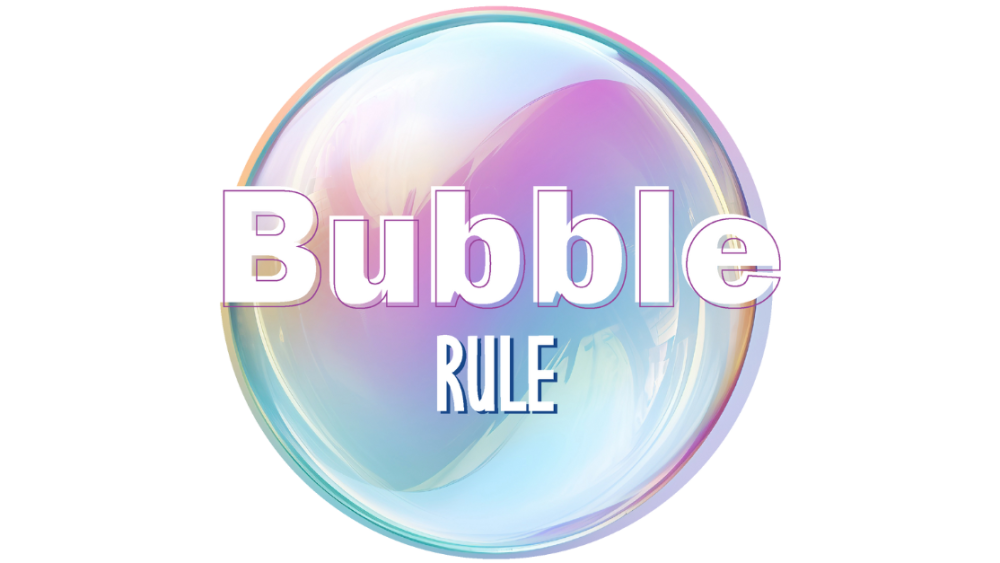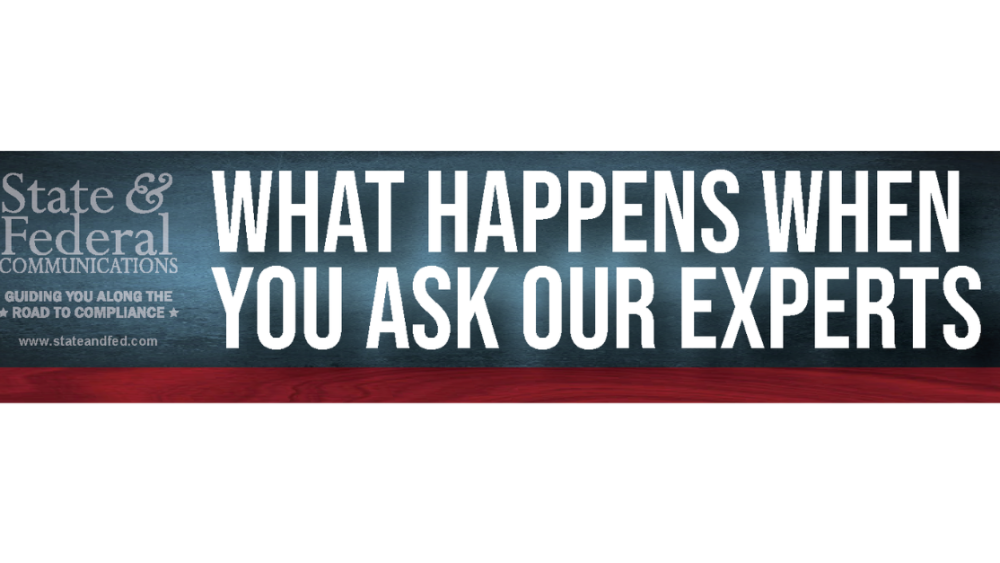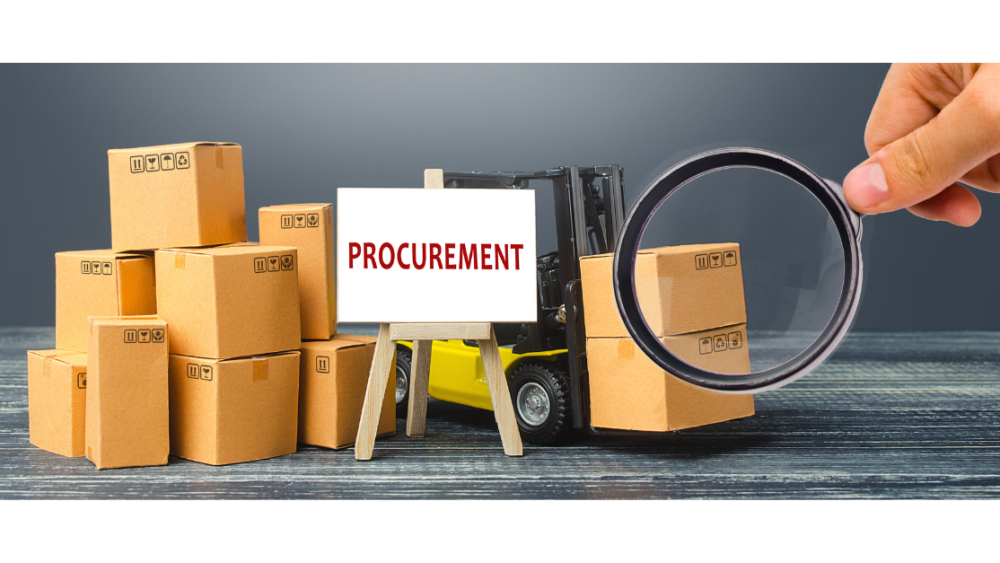July 17, 2024 •
Ask the Expert – How Will Changes to Minnesota Lobbying Laws Affect Registering and Filing?
Q: Since Minnesota updated their lobbying law and the changes went into effect at the start of 2024, how will the changes practically affect how lobbyists register and file reports? A: Minnesota passed legislation affecting lobbying registration and reporting that […]
Q: Since Minnesota updated their lobbying law and the changes went into effect at the start of 2024, how will the changes practically affect how lobbyists register and file reports?
A: Minnesota passed legislation affecting lobbying registration and reporting that went into effect on January 1, 2024. To correspond with the changes the Campaign Finance Board (CFB) has updated their lobbyist registration, termination statement, and reporting forms.
Lobbyists should be aware the registration threshold has increased from $250 to more than $3,000 for individuals who spend personal funds to influence government action. Calculating the threshold does not include an individual’s own traveling expenses and membership dues. While the increased threshold allows individuals to track their activities until they reach the higher amount the law expanded the scope of local government lobbying which could lead to more activities being included in determining your registration requirements.
The scope of local government lobbying was expanded by amending the definition of lobbyist to replace all references to metropolitan governmental unit with political subdivision. A political subdivision includes the metropolitan council, a metropolitan agency, including the Metropolitan Parks and Open Space Commission, Metropolitan Airports Commission, and Metropolitan Sports Facilities Commission, and a municipality, including a county, town, city, school district or other municipal corporation or political subdivision of the state authorized by law to enter into contracts. Communication with local officials of a political subdivision will need to be tracked and included in calculating your threshold. The new form released by CFB reflects these changes. Lobbyists will also be required to list the general lobbying categories of interest on registrations.
On the reporting and termination forms, lobbyists will no longer be required to report disbursements. Instead, individuals must affirm whether legislative, administrative, or local governmental action occurred during the reporting period. For each type of governmental action, the lobbyist must include at least one general lobbying category and up to four specific subjects of interest lobbied during the reporting period. For administrative actions, individuals must also include the agency lobbied and revisor number if applicable. Lobbyists must continue to report the amount and nature of each gift, item, or benefit $5 or more, given or paid to any public official, an employee of the Legislature, or a local official, by the lobbyist, an employer, or employee of the lobbyist, and each original source of money in excess of $500 in any year used for the purpose of lobbying.
While the CFB has not released an updated form for the annual report, the new lobbying law requires the total amount spent on each lobbying type during a calendar year to be rounded to the nearest $9,000 instead of the current $20,000. We expect the CFB to release a new form closer to the annual reporting due date.
The information from this response can easily be found on our website in the Lobbying Compliance section of the United States Compliance Laws publication. Please do not hesitate to contact us if you have questions.

Q: I’m travelling to a new state to have lobbying meetings with legislators and staffers. My outside counsel will be with me and has told me I don’t need to register as a lobbyist because we will be together. Is […]
Q: I’m travelling to a new state to have lobbying meetings with legislators and staffers. My outside counsel will be with me and has told me I don’t need to register as a lobbyist because we will be together. Is this true?
A: This is a question I get routinely and I refer to it as the “bubble rule.” The basic idea is if I am with a registered lobbyist while engaging in lobbying, I will not have to register myself. The majority of states do not have such a rule. When you engage in lobbying, you must evaluate whether you need to register independently of the fact that a registered lobbyist is with you during your communications.
Some states do have a version of the “bubble rule”. In California, an individual does not engage in a direct lobbying communication if he or she is an employee of a lobbyist employer, meets or speaks with a qualifying official in the company of a registered lobbyist retained by the individual’s employer, and participates as a subject matter expert. Idaho will not require registration for employees of a corporate entity if the entity itself has registered as a lobbyist, has appointed one or more of its employees or contractors as its official designated lobbyist, and the person so appointed by the entity has registered. Finally, Utah might have the best version of the rule. In short, an individual representing an entity who interacts with a public official, while accompanied by a registered lobbyist who is lobbying in relation to the subject of the interaction, is not required to register so long as the person does not make an expenditure on a public official.
Please keep in mind the nature of the interaction and why you are accompanying your outside counsel may itself be an exemption to lobbyist registration. You may be serving as a subject matter expert, which is referenced in the above California example. You may be testifying before a legislative committee, which is often seen as an exemption from lobbyist registration. Remember if using a testifying exemption from registration, you often cannot engage in any other lobbying communications.
In summary, do not believe that you are exempt from lobbyist registration simply because you are lobbying with someone who is already registered. Know the laws in the state and evaluate your need to register independently of who is with you during your meetings.
The information from this response can easily be found on our website in the Lobbying Compliance section of the United States Lobbying Compliance Guidebook. Please do not hesitate to contact us if you have questions.
May 7, 2024 •
Ask the Expert – Georgia’s New Lobbyist System
Q: I need to register as a lobbyist in Georgia and I have heard Georgia has overhauled their system. Were there any changes to how one registers or to what is required on lobbying reports? A: Georgia has undergone a […]
Q: I need to register as a lobbyist in Georgia and I have heard Georgia has overhauled their system. Were there any changes to how one registers or to what is required on lobbying reports?
A: Georgia has undergone a massive renovation of their lobbyist system. Registration is now a complex process that requires clients to make an account, which was not necessary under the old system.
When creating a client account, the system will request a list of officers and authorized agents. Any officers listed will have a client account created, using the email provided as a Login ID. Only officers are able to file reports, while authorized agents may only input information into the system.
Once the registration is submitted, an email will be sent to each of the listed officers, prompting them to create a password. The Ethics Commission will only discuss issues with the client account with the listed officers.
Following the creation of the client account, the lobbyist account may be created.
Once the lobbyist registration is submitted, a “token” will be created and emailed to the officers of the listed client. The client must then accept the “token” by clicking on the link and authorizing the lobbyist. The system will then send an email to the lobbyist to create their password. Once the password is created, the lobbyist is officially registered. It is important to note the lobbyist’s account will not be created until the client accepts the relationship. The $20 badge fee may be paid from the lobbyist account or the client account.
While the changes to lobbyist reporting are more modest, there are still differences between the old and new systems.
A large change is that there are now only three different reports: Local, Legislative, and Agency. The Agency report has combined Agency, Vendor, and State Board of Transportation into one report. Even if you only registered as an Agency lobbyist, your report will be labeled as an Agency, Vendor, and State Board of Transportation report.
The new system now requires additional information to file a report. Each expenditure disclosure must now contain:
• Date of the expenditure
• Amount
• The client of the lobbyist
• The “type” of expenditure
• A description of the expenditure
• The name of the payee
• Whether the recipient is a public officer or group and their name.
The system also allows for the disclosure of the purpose of the expenditure and the number of the bill, resolution, or regulation, but this is an optional disclosure.
May 2, 2024 •
Subscriber Benefit — Ask the Expert — is #1

A few years ago, we added a tab on our website and called it Ask the Expert. Subscribers could pose a question about the content of our online guidebooks. We found this to be a great value add for our […]
A few years ago, we added a tab on our website and called it Ask the Expert. Subscribers could pose a question about the content of our online guidebooks. We found this to be a great value add for our clients.
- You mentioned a change in Louisiana. When will that go into effect?
- Should our state folks track federal activity if they are not registered?
- How can I amend a report we filed in Tennessee?
These are great questions, and we are happy to help.
However, two things have happened since we started.
- Our clients have a lot of questions. Most of the questions deal with definitions from the states along with clarification of dates.
- Michael Beckett has been terribly busy. Michael is our Associate Director of Research with six managers working for him. Whatever the district, he can route it to an attorney for a response.
We want to be of assistance to our subscribers when there are questions. We just need to make sure we have all the information.
Subscriber benefits are designed to include inquiries about the content of our online guidebook. Questions requiring novel research, application of subject matter, and projects involving multiple districts are outside the scope of this program.
We want to make sure we have all the information needed to answer your questions, and it helps if we can set up an agreement to assist you with your concerns. This does not move you over to our Consulting work. It just makes sure both sides are protected, and the cost is minimal.
Lobbying compliance is not easy, and we know you have other business to handle for your organization. We can help you at any level.
Until next month, prepare for the busy summer schedule of meetings being held everywhere, and Ask the Expert if you are stumped.
See you on the road.
Thank you.
Elizabeth Z. Bartz
@elizabethbartz
April 9, 2024 •
Ask the Expert – Procurement Lobbying Registration Requirements

Image by Andrii Yalanskyi
Q: I want to sell my company’s product to a state or local government entity. Do I need to register as a lobbyist? A: Jurisdictions approach the issue of procurement lobbying differently and registration requirements can vary widely from one […]
Q: I want to sell my company’s product to a state or local government entity. Do I need to register as a lobbyist?
A: Jurisdictions approach the issue of procurement lobbying differently and registration requirements can vary widely from one jurisdiction to the next.
Some jurisdictions completely exempt procurement activities from their definition of lobbying. For example, in Maine, registration is not required for procurement-related activities because those activities are not considered lobbying. On the other hand, jurisdictions like Idaho require registration for procurement-related activities, subject only to the state’s general registration threshold.
To complicate matters further, some jurisdictions set different registration thresholds for procurement lobbying activities than they do for other lobbying activities. In Florida, for example, employees engaged in procurement activities on behalf of their employer are required to register as executive branch lobbyists if they lobby to procure a contract with a value of more than $20,000.
Additionally, even if a state’s law doesn’t cover a particular procurement activity, local entities and municipalities may have more stringent registration requirements that do reach your contemplated activities. Certain hospital systems and school districts in Florida, for example, require representatives of companies hoping to do business with them to register as lobbyists prior to meeting with them to discuss potential procurement opportunities.
Though sales teams often function separately from government affairs teams, if your company is selling to a governmental entity, you should carefully consider whether any lobbying laws will apply to your procurement efforts.
More information about procurement lobbying requirements can easily be found on our website in the Registration section of the Procurement Lobbying Compliance Guidebook.
April 8, 2022 •
Ask the Experts – LDA Reporting Expenditures and Taxes
Question: For federal income tax purposes, our organization has been using the aggregate amounts reported on our quarterly LD-2 lobbying activity report as our non-deductible lobbying expenses. Can the expenditures we compile for LDA reporting be used interchangeably for tax […]
Question: For federal income tax purposes, our organization has been using the aggregate amounts reported on our quarterly LD-2 lobbying activity report as our non-deductible lobbying expenses. Can the expenditures we compile for LDA reporting be used interchangeably for tax purposes?
Answer: In a word: maybe – depending on the method of LDA reporting you’ve opted to follow. If you file your LD-2 report using the IRC definitions (method C), then the number you compile and report on your LD-2 can be used interchangeably for tax purposes. However, if you compile and report your quarterly lobbying expenditures using LDA definitions (method A), the results will not accurately reflect non-deductible lobbying expenses as defined by the IRS. Because the definition of “lobbying” differs between the LDA and the IRC, the two compilation methods will produce very different results. If you use LDA definitions to compile your quarterly LD-2, your organization must employ a second process by which to determine your non-deductible lobbying expenses for tax purposes. A lobbying registrant can determine each year which method they will use to compile the LD-2 report. Once a method has been selected, a registrant must use that method for all four quarterly reports during that year. The upcoming first quarter report is a good time to revisit the compilation method used and make changes if elected for 2022.
For more information about filing methods and reporting requirements visit our online publication Federal Lobbying Compliance Law section.
State and Federal Communications, Inc. provides research and consulting services for government relations professionals on lobbying laws, procurement lobbying laws, political contribution laws in the United States and Canada. Learn more by visiting stateandfed.com.


